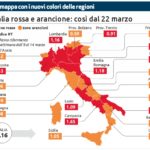 In Italia è spesso affiancato a Giorgio Calcaterra per far capire come stia correndo in modo ancora più esasperato rispetto al tassinaro romano. Lui è un impiegato statale – 40 ore alla settimana nel turno pomeridiano (12:45-21:15) – in un centro di formazione permanente, non si sbrega in allenamento (130-140/km a settimana, spesso a 5’/km) ma gareggia quasi ogni fine settimana. Ho trovato il riassunto agonistico dell’inizio 2015 e mi sono saltate all’occhio due maratone in 2h15′ nelle ultime due domeniche (un record mondiale, a modo suo), lanciatissimo verso un’imbattibile combinazione quantità-qualità.
In Italia è spesso affiancato a Giorgio Calcaterra per far capire come stia correndo in modo ancora più esasperato rispetto al tassinaro romano. Lui è un impiegato statale – 40 ore alla settimana nel turno pomeridiano (12:45-21:15) – in un centro di formazione permanente, non si sbrega in allenamento (130-140/km a settimana, spesso a 5’/km) ma gareggia quasi ogni fine settimana. Ho trovato il riassunto agonistico dell’inizio 2015 e mi sono saltate all’occhio due maratone in 2h15′ nelle ultime due domeniche (un record mondiale, a modo suo), lanciatissimo verso un’imbattibile combinazione quantità-qualità.
Per conoscerlo meglio è sufficiente un minimo di inglese, tradotto dal giapponese nell’autunno scorso @NYC da Brett Larner, fenomenale divulgatore, tenendo sott’occhio Kawauchi Counter per verificare se migliora nella maratona di Seul 15/03: chissà se Yuki si prende davvero due domeniche libere da gare per battere il PB 2h08’14” (Seul 2013/03/17).
“He’s a rebel government clerk, which is an oxymoron in itself, and has been vocal in encouraging people to try other ways, that you don’t have to be a cog in the system, but he’s so dedicated to his job, he rarely runs outside Japan so he won’t have to take a day off.” He refuses offers of sponsorship, a spot on a corporate team, even a gym membership, all things most elites think of as essential to getting the job done … ecco alcune perle dell’intervista di Sarah Barker.
Why do you race so often? Two reasons: It serves as training for me. Because I’m on my own, I use races as workouts and to get race experience. It’s more productive than just long periods of training. The other reason is that it’s my dream to run marathons all around the world, in every country. Racing often is a way to make that dream happen. By the 2020 Tokyo Olympics, I want to have run 100 marathons.
To demonstrate alternatives to the corporate system of elite running? Yeah, of course. There are lots of options out there for young runners. I want to show that they have choices. Decades ago, some of the best Japanese runners operated outside the team structure. More recently, some athletes have quit
To represent Japan at major championships? Yes, it is a goal. For most Japanese athletes, that’s their only goal. It’s not the be all end all for me.
To have fun and travel? [laughs] That’s the number one! The having fun part.
Do you think you’d run faster if you raced less? Racing a lot is what my running means to me, it’s a key element. If I raced less, it would be something different. It’s hard to describe but racing a lot has meaning, it’s the essence of my running. If I raced less, it would effect my motivation. I might lose interest in running if I only raced a few times a year.
Describe a typical week of training/racing. Monday and Tuesday, a 20km jog at 5min/km pace; Wednesday intervals; Thursday,Friday and Saturday, 20km jog; race Sunday. I work out once a day, in the morning. I work from 12:45 to 9:15 pm in the office of an adult continuing education school, accepting fees, answering the phone.
And you’re back in the office on Monday? Usually, yes.
Do you do strength training or cross training? Monday, Wednesday, and Friday, I do basic things—bench press, lat pull down, adductor and abductor exercises. At home, not at a gym. I made it myself from stuff I got at a home supply store.
How are you able to avoid injury on such a relentless schedule? I race nonstop, but of course it’s divided into main races and sub-races. I’m not hitting it hard every week. Also, I’m really careful with immediate post-race recovery—jogging, walking, icing, going to the onsen [Japanese hot springs]. If I have pain, I’ll take time off, one day, and focus on things necessary to treat that pain. I’ve had some small things, but I’m very careful. Once or twice a month I go to a massage therapist for massage and acupuncture. On weekends, the group I train with, we give each other massages.
Are you vegetarian? No.
Why not quit your job? [laughs] There’s no reason to quit. Every year since I started running, I’ve set personal bests. This environment works for me. If I had more free time, it might not work. [Larner said there are regulations about how much Kawauchi can make from racing because he’s government employee, but suffice to say, he made more from running than from his salary.]
What is your plan for improvement? Definitely, the way I’m doing things now is good enough to get me there. 2:07 is in sight, in December at Hofu or in March in Seoul.
Have you inspired others to try your independent, frequent racing method? In the group I train with, some people are following that model, but they are running to win small local races, or break 2:30 in the marathon. It’s true, good university runners still choose the corporate model. If they did what I’m doing, it would be interesting to see what might happen.
Ovviamente non capisco il giapponese, ma mi sono fatto bastare le immagini che raccontano molto la storia di un ragazzo fuori dagli schemi giapponesi. non per questo meno educato e rispettoso.







Leave A Comment